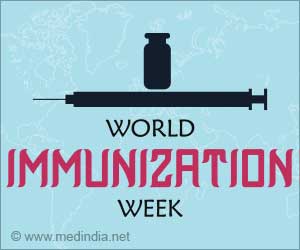US researchers have found that specific pre-existing antibodies cause severe anaphylactic reaction to the cancer drug Cetuximab.
Cetuximab, a monoclonal antibody, is a genetically engineered immune system compound designed to act specifically on cancer cells. It is produced by a single cell line and acts against a specific protein. The drug curbs a growth factor receptor found on the cell surface, thereby controlling the growth of cancer cells.But in some patients the drug caused a severe allergic reaction.
Dr. Thomas Platts-Mills of the University of Virginia said the discovery explains why some people reacted severely to the drug and why some did not.. It has been observed that 22 percent of patients treated with cetuximab in Tennessee and North Carolina had a life-threatening anaphylactic reaction, while less than 1 percent of patients in the Northeast region reacted that way.
The study, published in the New England Journal of Medicine, tested Cetuximab on 538 people, including 76 cancer patients in Tennessee, Arkansas and North Carolina and also healthy volunteers from Tennessee, California and Boston.
The research team found that among the 76 cancer patients under observation, 25 developed hypersensitivity reactions and 18 of these individuals showed a positive reaction for IgE antibodies to Cetuximab.
Immunoglobulin E or IgE response is the classic immune response that causes anaphylactic seizures. Many of those observed in the study started reacting severely almost immediately after getting the drug. This suggests they had a pre-existing immunity, according to team leader Dr.Platts-Mills.
Advertisement
Dr.Platt-Mills took a mountain hike and felt itchy in the legs and traced it to what are locally known seed ticks. He observed that they were found only in the south, the same states where patients were reacting to the cancer drug. Experts are making extracts of ticks to test people for IgE antibodies. This will help in giving new information about the immune response to ticks in these people.
Advertisement
Source-Medindia
THK/L











